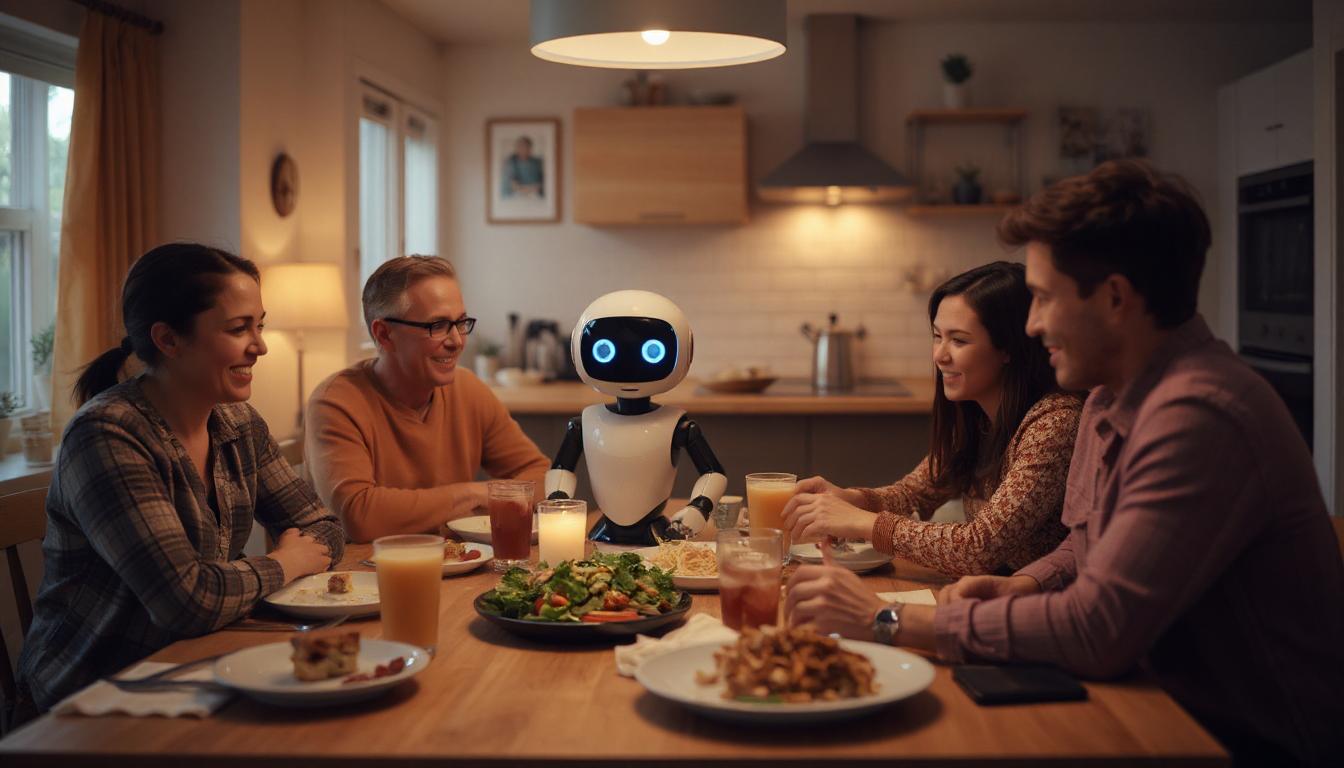AI in the Home: How Artificial Intelligence is Transforming Our Daily Routines
Introduction
In the not-so-distant past, the idea of having artificial intelligence in our homes seemed like something straight out of science fiction. Today, AI has quietly woven itself into the fabric of our daily lives, making routine tasks simpler, more efficient, and sometimes even enjoyable. From the moment we wake up until we go to bed, AI-powered solutions are working behind the scenes to streamline our home lives. Let's explore how AI is revolutionizing everyday household routines and look at some real-world applications that are making a difference.
Morning Routines: Starting the Day Smarter
Smart Alarm Systems
Maria, a marketing executive and mother of two, used to struggle with mornings. Now her AI-powered sleep tracker monitors her sleep cycles and wakes her during her lightest sleep phase, making mornings less jarring. "I feel more refreshed and alert," she says. "The system even adjusts my wake-up time based on my first meeting of the day, factoring in current traffic conditions."
Automated Breakfast Preparation
Smart kitchen appliances with AI capabilities are transforming morning meal prep. The Rodriguez family uses a smart coffee maker that learns their preferences over time and has their perfect cups ready just as they enter the kitchen. Their smart refrigerator tracks inventory and suggests breakfast options based on available ingredients, dietary preferences, and even the weather.
Home Management: Keeping Things Running Smoothly
Intelligent Climate Control
Modern AI-powered thermostats go beyond simple scheduling. James and Sarah installed an AI system that learns their temperature preferences, occupancy patterns, and even adapts to local weather forecasts. "Last month, our energy bill was 23% lower compared to the same month last year," James reports. The system detected that nobody was home during unexpected times and adjusted accordingly.
Automated Cleaning Solutions
Robot vacuums have evolved from simple automated sweepers to intelligent cleaning assistants. Lisa, a busy professional living in a suburban home, relies on her AI-powered vacuum that creates detailed maps of her home, identifies high-traffic areas that need more attention, and even recognizes and avoids different types of obstacles (including pet accidents). "It's learned which days my kids make the biggest messes in the playroom and automatically schedules deeper cleaning those days," she notes.
Meal Planning and Grocery Management
Smart Meal Planning
AI-powered meal planning apps are removing the daily stress of "what's for dinner?" The Chen family uses an app that suggests meals based on their dietary preferences, what's in season, what they already have in their pantry, and which ingredients need to be used soon to minimize food waste. "We've reduced our food waste by almost 40% since we started using AI for meal planning," says Mr. Chen.
Automated Grocery Shopping
Virtual assistants now help maintain shopping lists that automatically update as items run low. The Garcia household has smart sensors on frequently used items, and their system automatically adds products to their online shopping cart when supplies dwindle. "Last week, my dish soap was automatically reordered and delivered the day before we ran out—I hadn't even noticed we were low," Mrs. Garcia explains.
Home Security and Monitoring
Intelligent Security Systems
Today's AI-powered security systems do far more than record footage. The Williams family installed cameras that distinguish between family members, regular visitors, delivery personnel, and strangers. "When our teenager comes home from school, we get a specific notification. When an unknown car parks in front of our house for more than 10 minutes, we get a different alert," explains Mr. Williams.
Elder Care Monitoring
For families caring for elderly relatives, AI offers peace of mind. Mrs. Johnson installed a system in her 85-year-old mother's home that learns normal movement patterns and can detect potential falls or unusual behaviors. "Last month, the system noticed my mom hadn't moved from her bedroom for an unusual amount of time during the day and alerted me. She had become dizzy and needed assistance but couldn't reach her phone," she recounts.
Entertainment and Leisure
Personalized Media Recommendations
AI algorithms have transformed how we discover and consume entertainment. The Patel family's smart TV system analyzes viewing habits to suggest content tailored to whoever is watching. "On Friday nights when it's just my husband and me, it suggests documentaries and dramas we both enjoy. When the kids join on weekends, it automatically shifts to family-friendly options," Mrs. Patel shares.
Smart Home Libraries
Virtual assistants now function as knowledge hubs for homes. The Thompson household regularly asks their AI assistant for recipes, homework help, and random facts. "Just yesterday, my daughter was struggling with a math problem. Our assistant not only explained the concept but projected a visual demonstration on our smart display that made it click for her," says Mr. Thompson.
Challenges and Considerations
Despite these advances, integrating AI into our homes isn't without challenges:
- Privacy concerns remain paramount, with many families establishing "AI-free zones" in certain rooms.
- Over-reliance on automated systems can sometimes create frustration when systems fail.
- The digital divide means these technologies aren't equally accessible to all households.
- Integration issues between different systems can create friction in otherwise smooth experiences.
Looking Forward
As AI continues to evolve, we can expect even more seamless integration into our daily routines. Technologies on the horizon include:
- AI systems that can predict household needs before family members are aware of them
- More emotional intelligence in virtual assistants that can respond to family moods and stress levels
- Better integration between different manufacturers' systems
- More accessible and affordable options for a wider range of households
Conclusion
The quiet revolution of AI in our homes isn't about replacing human activities but enhancing them—giving us back time, reducing cognitive load, and handling repetitive tasks so we can focus on what matters most. Whether it's a single smart speaker or a fully integrated smart home, AI is transforming our daily routines in ways both subtle and profound.
As we embrace these technologies, the key is finding the right balance—using AI to enhance our home lives while maintaining the human connections and activities that make a house a home.

